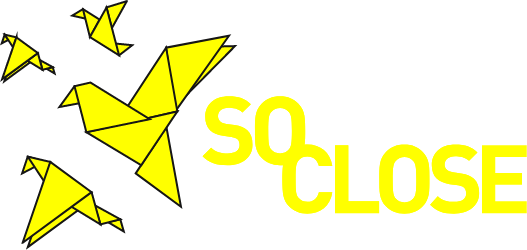by Lili Nottrott

After almost two years of no in-person meetings, the SO-CLOSE consortium has finally had the opportunity to come together in a 2-Day training event in Bologna. Organized by MONTE, ULUND and TEMP, the training event signaled the final transition from WP3 to WP4 activities, from tool development to implementation, curation, and validation.
Participatory virtual exhibition
We started off Monday, Nov 15th, with a tour to the Monte Sole Peace School and its surrounding historical park. A workshop on Storytelling, led by SO-CLOSE researcher Łucja Piekarska-Duraj (VDA), addressed important aspects to consider throughout the curation process that guides the content gathering and tool implementation. With a specific focus on connecting objects with narratives, the group engaged in interpretive activities related to personal objects. The main goal was to support project participants with the tools to organize and interpret their collections in a narrative way while at the same time focusing on the functions that the personal objects can play in the processes of gathering information.

In the afternoon, the MONTE team provided us with a very insightful tour of the historical park area which created space for interesting discussions around memory, representation, history, and identity.

Day 2 was dedicated to both the technological advances SO-CLOSE has achieved in the tool developments, as well as further sessions on the implementation guidelines with focus on accessibility and historical connections.
SO-CLOSE technological partners from TEMP, ENG, and CERTH presented the final tool prototypes and elaborated on the connections between the Media Center Platform, Crawling tools, and the three digital sharing tools. The crawling tools allow us to subtract relevant historical and present material that can be found on chosen online sources. These will enrich the material that will be gathered by the cultural institutions and contributing participants.

The accessibility guidelines presented and discussed have the purpose to ensure that (i) the tools are filled with accessible content according to A or AA levels, and (ii) the upcoming Open day events next summer are accessible for a diverse audience.
The guidelines on historical connections focus on connecting past and present experiences and thereby highlight the commonalities of forced mass displacement in a context-sensitive and reflective manner. These connections may help societies to remember the past and to reinterpret it through the experiences of the present which take place in the context of interactions between local communities and refugees.
This training event aimed at preparing the cultural institutions to implement the tools in their specific context, and all presentations and discussions directly inform the deliverable D4.1 Guidelines for Implementation that will be submitted at the end of this month, November 2021.



